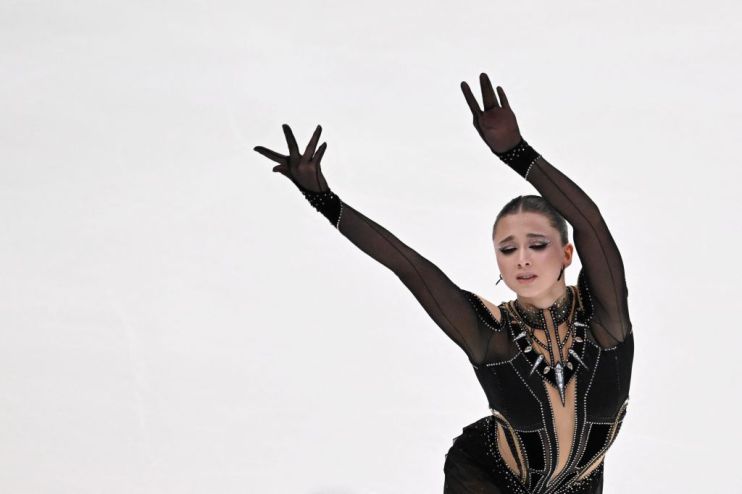Valieva: Kremlin calls Russian skater four-year drug ban ‘politicised’
Kamila Valieva, who at 15 helped Russia win a team ice skating gold at the Winter Olympics before being found to have doped, on Monday received a four-year ban from the sport.
But the Kremlin in Moscow has hit back at the ruling, slamming it as “politicised”.
Having initially been cleared of the accusation, made at the Beijing Winter Olympics in 2022, with the Russian Anti-Doping Agency finding the teenager at “no fault” of a failed test, an appeal by the World Anti-Doping Agency was upheld by the Court of Arbitration for Sport (Cas) yesterday.
Valieva doping ‘unforgivable’
“The doping of children is unforgivable,” Wada said in response.
“Wada encourages governments to consider passing legislation – as some have done already – making the doping of minors a criminal offence.”
The ban has been backdated to 25 December 2021 – when she was tested after a win at the Russian Championships – with all results achieved since updated to disqualify the Russian, who is now 17.
“Ms Valieva was not able to establish, on the balance of probabilities and on the basis of the evidence before the panel, that she had not committed the Anti-Doping Rule Violation (ADRV) intentionally,” Cas said.
‘Politicised’
But a spokesperson for the Kremlin said: “Of course, we don’t agree with it… From my point of view, of course, it’s politicised.”
Valieva became the first female skater to successfully complete a quadruple jump at the Olympics with the show stopping move key to her team’s gold medal in Beijing.
But she had tested positive for trimetazidine ahead of the games, she was told the day after she won gold.
There have been debates surrounding whether trimetazidine has a net positive impact on an athlete given side effects which are said to include hallucinations and gait disorders.
The United States will now receive gold medals, with Japan getting silvers and Canada the bronzes.
